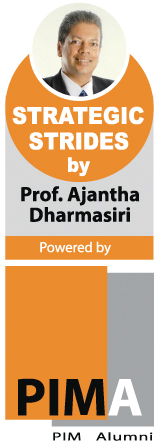
 Christmas 2022 is around us. Typically, it is not only a time to relax and refresh, but also to reflect and to reinforce. This year it is indeed different. As religious leaders advocate, Christmas should be celebrated remembering the poor, who have been severely affected by the crisis. They further stress the need to concentrate on a spiritual celebration of Christmas and encourage everyone to share the joy of Christmas with those who have been deprived of joy and happiness due to the pandemic. Today’s column reflects on such realities.
Christmas 2022 is around us. Typically, it is not only a time to relax and refresh, but also to reflect and to reinforce. This year it is indeed different. As religious leaders advocate, Christmas should be celebrated remembering the poor, who have been severely affected by the crisis. They further stress the need to concentrate on a spiritual celebration of Christmas and encourage everyone to share the joy of Christmas with those who have been deprived of joy and happiness due to the pandemic. Today’s column reflects on such realities.
Overview
Despite the overly commercial coverage of Christmas, the true serenity associated with spirituality is still significant. As someone boldly said the other day, Christmas is certainly not Santa’s birthday.
I think it is high time to be brilliant on basics in responding to the call to be spiritual. It supersedes traditional religious boundaries. In essence, Christmas invites us to awaken ourselves towards spirituality.
Let us see what spirituality is from a management perspective. It involves a term for many beliefs and practices intended to develop one’s inner life. It is associated with a feeling of interconnectedness. In other words, it is the vital principle that gives breadth of life to physical organism.
A time for living, a time for believing
A time for trusting, not deceiving, Love and laughter and joy ever after Ours for the taking, just follow the master.
The above is an extract from one common Christmas carol we hear, “Mistletoe and Wine”. It was made popular as a single by Cliff Richard. We observed how many corporates committed innovatively organising virtual Christmas carols during recent weeks, after a long lapse due to Covid-19 restrictions. It has become not a mere annual ritual but a deeper organisational endeavour in strengthening employee engagement. Participating in carols is a demonstration of unity, solidarity, and team collaboration as a set of professional colleagues. In turn it helps the needy in the society as well.
The essence here is synergy in action, leaving aside differences. This has a clear connection to what management scholars termed as “spiritual intelligence”.
Spiritual Intelligence in focus
The pivotal point here is intelligence. As we discussed some time ago, intelligence comes from the Latin verb “intellegere”, which means “to understand”. It is an umbrella term used to describe a property of the mind that encompasses many related abilities, such as the capacities to reason, to plan, to solve problems, to think abstractly, to comprehend ideas, to use language, and to learn.
We know for sure, intelligence is not only reading, writing, and doing arithmetic. It goes far beyond. Emotional intelligence has become quite popular in showcasing the power of harnessing positive emotions. The newest addition to the list is spiritual intelligence.
What is Spiritual Intelligence? It is what all great religious leaders aptly demonstrated. It is what was available in leaders of all spheres of life from time immemorial. It is what got repackaged by Dana Zohar, a quantum physicist in the late nineties. Interestingly, her work heralded an era where a whole new focus on spirituality linked to intelligence began.
As Zoar vividly describes, spirituality is to “know” who you are, and Spiritual Intelligence is to “realise” who you are and to live life in that awareness. You have always been who you are, and, in truth, you can never be other than who you are, but it requires “realisation” i.e., that moment when you “see it”, when you “get it” and then you “be it”.
Spirituality is different to being religious. You can to all the religious places in the world but if you do not demonstrate values in your action, you are not spiritual yet. Being spiritual is essentially maintaining three connections. They can be stated as connecting to self, to others and to the universe (higher being).
Components of Spiritual Intelligence
Based on the work done by Zohar and Marshall (1997), the following have been highlighted as key components.
Self-Awareness
Knowing what I believe in and value, and what deeply motivates me. As Thich Nhat Hanh, A reputed Vietnamese bhikkhu told once, “feelings come and go like clouds in a windy sky. Conscious breathing is my anchor.”
Spontaneity
Living in and being responsive to the moment.
Being Vision and Value led
Acting from principles and deep beliefs and living accordingly.
Holism
Seeing larger patterns, relationships, and connections; having a sense of belonging.
Compassion
Having the quality of “feeling-with” and deep empathy.
Celebration of Diversity
Valuing other people for their differences, not despise them.
Field Independence
Standing against the crowd and having one’s own convictions.
Humility
Having the sense of being a player in a larger drama, of one’s true place in the world.
Tendency to ask Fundamental “Why?” Questions
Needing to understand things and get to the bottom of them.
Ability to Reframe
Standing back from a situation or problem and seeing the bigger picture; seeing problems in a wider context.
Positive use of Adversity
Learning and growing from mistakes, setbacks, and suffering.
Sense of Vocation
Feeling called upon to serve, to give something back.
Having discussed the components of spiritual intelligence, it will be interesting to see its connection to values.
Values as the Core
Jim Collins’ best-selling book, “Built to Last: Successful Habits of Visionary Companies” concludes that truly great companies are visionary, and value driven.
In his next book, “Good to Great: Why Some Companies Make the Leap and Others Don’t,”) Jim Collins researched 11 companies who made the transition from being good companies to being “great” companies on par with the companies in “Built to Last”. A key finding was that each company had what he calls “Level 5 Leadership” or in simple terms, leadership at its greatest level.
The logical connection here is that great leaders seem to demonstrate most, or all of the characteristics described as Spiritual Intelligence by Zohar. Great leaders showed a profound personal humility and a powerful faith that they and their company would prevail in the end, regardless of the difficulties.
Spiritual Intelligence as five-fold capacities
Robert Emmons (2000) illuminates us on five key capacities of spiritual intelligence. They are as follows:
Capacity to transcend the physical and material.
This refers to the mental action of thinking beyond what is seen. It involves a deep level of thinking.
Capacity to experience heightened states of consciousness.
This is essentially mindfulness. An area where conscious breathing can be of very high importance.
Capacity to sanctify everyday experience.
In simplifying, this refers to accepting things as they are rather than as they ought to be. It makes one positive and constructive.
Capacity to utilise spiritual resources to solve problems.
Relying on your “built in wisdom “or trusting the gut in approaching problems where there is no precedence is what it means.
Capacity to be virtuous.
The reference here is to be ethical in demonstrating values in action.
It seems the common thread that cuts across all above aspects is connectivity. The relevance of it is in the pandemic times we are passing through is much evident.
Practical Implications of SI
SI is measured by SQ (Spiritual Quotient) which is in its early development. Even though it is a conceptually rich area, practical dimensions also should be given due prominence. There are still some issues to be resolved. Among them the non-availability of one consistent way of measuring features prominently. It is also difficult to measure by traditional means. The solution would be to introduce a competency-based SI assessment instrument. Spiritual Intelligence Self Report Inventory (SISRI) is one such major attempt.
Spirituality should be reflected in action. Four Zen-like principles which are simple as ideas yet so deep as actions shed light on this.
Whoever comes is the right person.
Whatever happens is the only thing that could have happened.
Whenever it starts is the right time.
Whenever it is over, it is over.
By practicing spiritual intelligence, the Seven Sins in the world as identified by Mahatma Gandhi can be overcome, at least where an individual has some influence.
Wealth without work
Pleasure before conscience
Knowledge without character
Commerce without morality
Science without humanity
Worship without sacrifice
Politics without principle
Rather than pointing fingers at others, a constructively critical look at oneself would be a good starting point.
Spirituality during Christmas
Spiritual Intelligence should be seen more in practice than in preaching. It applies to business managers and public administrators alike. It reminds me of one of my precious childhood memories in visiting a remarkable personality, and now I know that he was highly spiritually intelligent.
My parents and I visited Rev. Fr. Mercelline Jayakody, who was at the old Catholic Church of Pilapitiya, Kelaniya. His room had a beautiful scenic view of the Kelani River. Perhaps he would have been influenced to write many Sinhala carols connecting the natural beauty of Sri Lanka to the nativity of Christ when he wrote:
Dina dina wehi kalu barawenawa, Maweli ganga diya borawenewa, Naththaa Kath beda gene enawa, Wehibara Uduvapaye
(Christmas comes with loads of gifts in rainy December when the waters of the Mahaweli become murky).
Way forward
Let me conclude with what Rev. Fr. Mercelline Jayakody, aptly hailed as the Priest of the Temple (Pansale Piyathuma), wrote in Sinhala highlighting the social reality of Christmas. My translation of it goes as follows:
My Christmas is…
When poor is well fed
When ragged clothes are no more
When your hands are consoled
When sin “goes” to Church.
It is all about being humane. This is exactly what we need to practice amid a planetary pandemic. Let us be human beings and not “human doings” or “human undoings.” There is no better time than this week, just after Christmas, to reflect on ourselves and refreshingly relate. Let that inward journey be a truly meaningful one.
